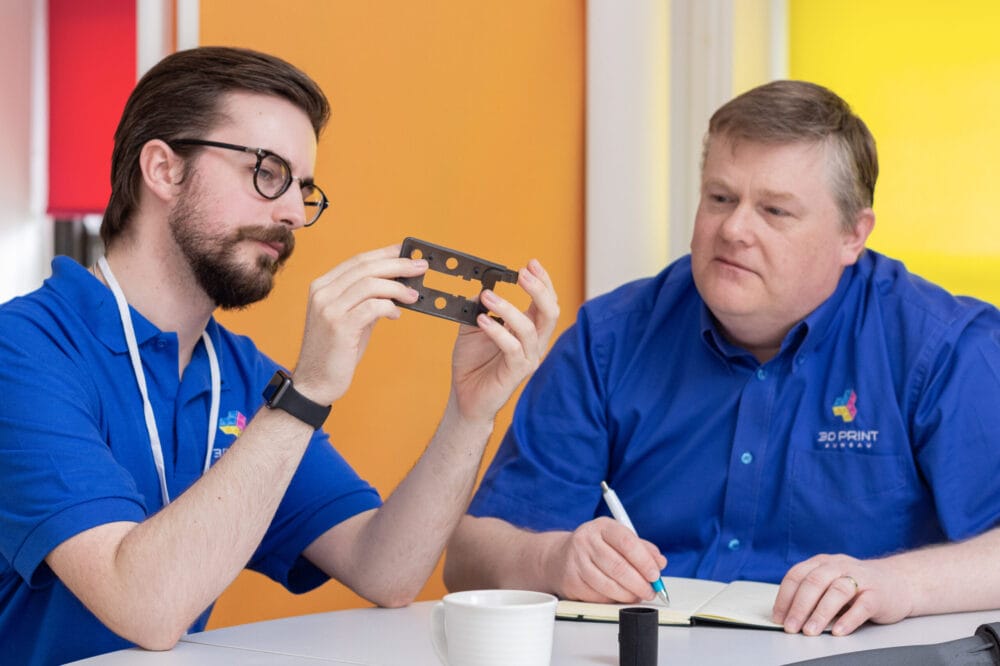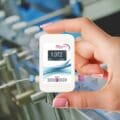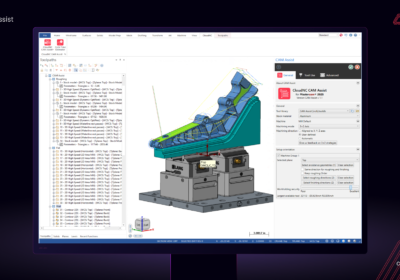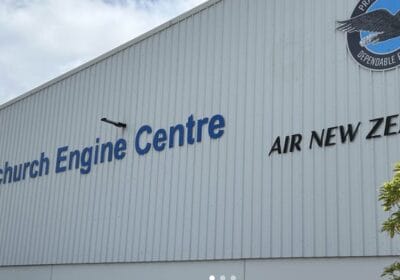For manufacturers looking to start their 3D printing journey, high upfront costs can make buying a machine daunting. But it’s not just costs — all applications have different needs, so a single system may not be able to fulfil every production requirement. Before manufacturers purchase their first additive manufacturing (AM) system, working with a 3D printing bureau can improve their knowledge of this technology and help them set up a strong production line. Here Adrian Painter, managing director at Tri-Tech 3D, explores how bureaus can help manufacturers upskill and prepare for additive production.
When starting your 3D printing journey, there’s lots to weigh up: upfront costs, how much the part will cost to print, and the estimated return on investment (ROI), to name a few. The thought of high upfront costs can be daunting, especially as one 3D printer is not a one-size-fits-all solution — different techniques and materials will be needed depending on the application.
Purchasing a 3D printer can boost your inhouse production capacity and flexibility immensely, but, for newer users of this technology, adjusting to additive can take time. Working with bureaus can help ease manufacturers in and give them a feel for what 3D printers really can deliver for them — inspiring much-needed confidence.
Technical expertise
Bureau staff don’t just print parts on demand, they act as advisors and can share their extensive industry expertise — something that’s invaluable to new 3D printing users. Bureau specialists can advise manufacturers on everything from part orientations and material choices, to estimated costs and production times.
By accessing this technical advice, manufacturers can better understand file prep, the different printing processes involved, as well as calibration techniques. Those working in bureaus can also explain how routine maintenance can help ensure optimal prints. These are all lessons that help inform the user, readying them for when they do eventually buy a system of their own.
File support is another important service. Sometimes, manufacturers may think that their CAD data file is fine and not realise there’s an issue with it until they remove the part from the print bed. Our team at 3D Print Bureau are design engineers as well as 3D printing experts, so they can fix individual files using Autodesk Netfabb and alter settings in platforms like GrabCAD, say, to facilitate self-support geometries.
GrabCAD supports the use of these CAD files and offers added benefits including seam placement and the ability to modify holes to specific insert types. Autodesk Netfabb also supports many CAD file types that, as a bureau, we can inspect, modify and convert to mesh-type files like STL if needed.
Over the years, many of our customers have said that working with a bureau helped them to learn 3D printing techniques on small projects as they go, which includes selecting materials and adjusting files. This information sets them up for when they do invest in a system, and their knowledge will only grow.
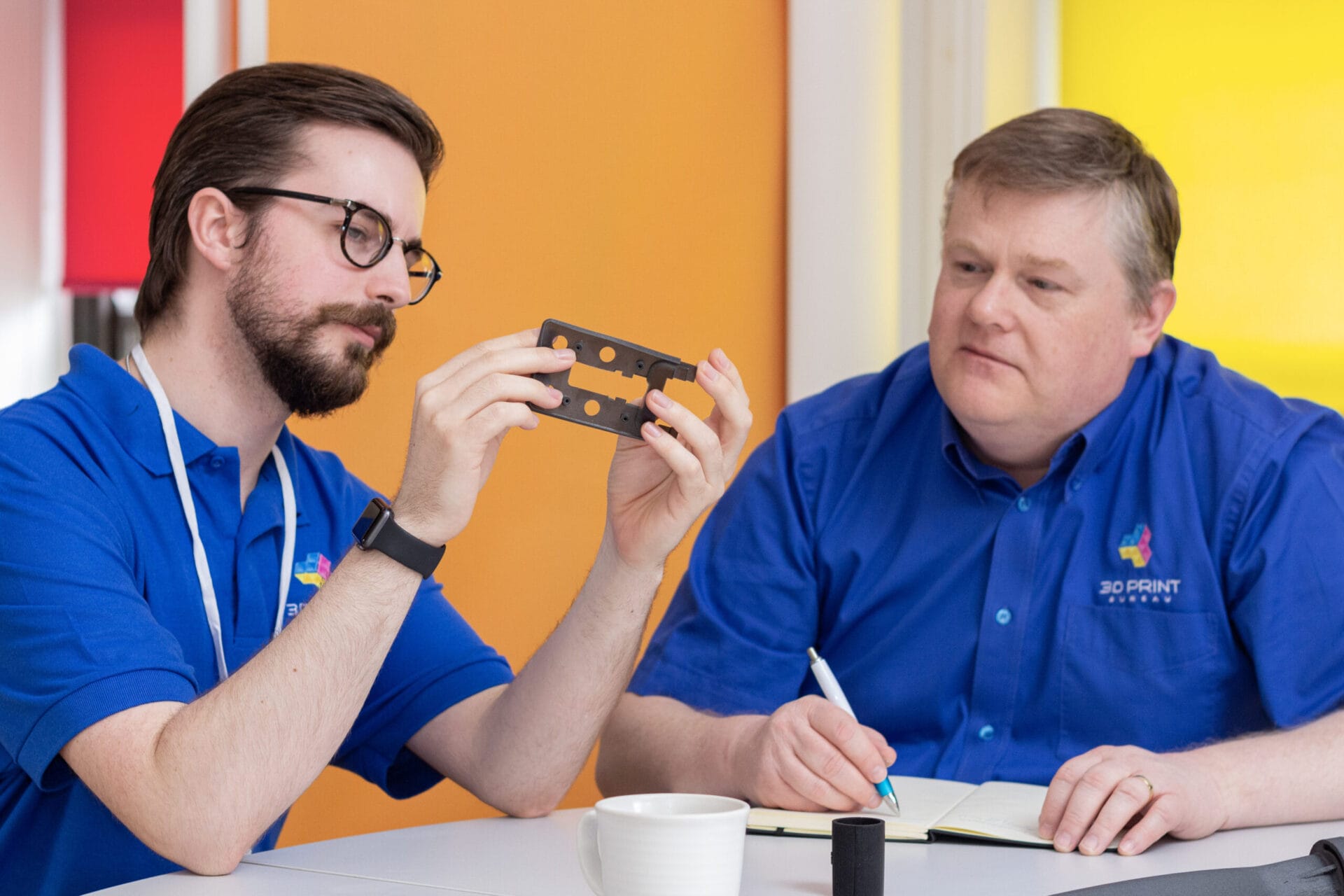
Saving time
Installing a 3D printer could disrupt existing operations at first and require configurations. If a manufacturer is new to this technology, the delays can be significant, so it can pay to bring in an external partner. If manufacturers require a fast turnaround time of 48 hours, for example, a bureau has the technology to produce the required parts promptly.
Take this example, a motorsport client has a vehicle racing in a high-profile competition in just three days, and a new plastic dash component is needed. If the in-house printer is already tied-up with other urgent builds, outsourcing can augment production and minimise delays. What’s more, manufacturers can be confident that the resulting part will meet the application’s quality requirements.
Material diversity
As well as expertise, bureaus offer choice. Manufacturers can choose from a wide range of materials, including plastics, metals, and composites, depending on the weight, finish and other application requirements. Having this choice means that manufacturers don’t need to invest in every technology to service their printing needs.
At 3D Print Bureau, we offer a wide selection of materials, including stereolithography (SL) materials like Somos® WaterShed XC 11122, which has ABS- and PBT-like properties and can produce clear, water-resistant parts, as well as fused deposition modelling (FDM) thermoplastics (including engineering and high-performance thermoplastics) and PolyJet Photopolymers, and Nylon PA11 and PA12.
Starting a 3D printing journey can be complex, especially when a manufacturer has grown accustomed to traditional machining processes. Working with a bureau is a nice way to ease into additive production and can de-risk production by providing access to vital expertise, minimising delays, while enabling flexibility.
To get a quote for your 3D printing project, visit the 3D Print Bureau site and upload your file. To find out more about Tri-Tech 3D’s support, visit the company’s website.

